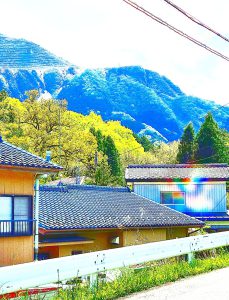『残滓と残渣 ~戦後日本の掘り起こし作業~』 ~粗忽長屋の文化財保護法~
- 2025.01.16
- 月刊芳美
『残滓と残渣 ~戦後日本の掘り起こし作業~』 ~粗忽長屋の文化財保護法~
登場人物
熊さん(熊五郎)
おおらかでどこか間抜けな性格、だけど悪気はない。家の前に遺跡が見つかり、文化財保護法の調査に協力することに。しかし、調査費用を請求されて困惑する。
八つぁん(八五郎)
同じく間抜けで、おっちょこちょい。熊さんの友達で、長屋の住人。文化財保護法の話を聞いても、全然理解できていないが、なんだか面白いことになりそうだと興味津々。
【第1幕】遺跡発見と文化財保護法の登場
(舞台は長屋。熊さんの家の前に、役所からの通知が届く。)
熊さん:「おい、八つぁん、こっちに来てみろ!な、なんだこりゃ?」
八つぁん:「なんだ、熊さん、急に呼びつけて。何かあったのか?」
熊さん:「これだよ、これ!『文化財保護法に基づく調査協力のお願い』だとさ!俺んちの前に遺跡が埋まってるんだと!」
八つぁん:「へえ、遺跡かい。お前んちの前に?そりゃまたすごいこった!」
熊さん:「そうなんだよ!でもよ、読んでみろよ、この通知。『遺跡発見に伴い、調査費用をご負担いただきます』って書いてあるじゃないか!俺が払えっていうのか!」
八つぁん:「なにそれ、遺跡の費用って、土でも買ってくれるのか?それとも金でも埋まってんのか?」
熊さん:「それがわかんないんだよ!俺の土地に遺跡が埋まってるから、調査してくれって言うけど、なんで俺が払うんだよ!これって、なんかおかしくないか?」
八つぁん:「おかしいおかしい!でも、熊さん、調査ってのはお金かかるもんだろうよ。だって、あれだろ、文化財保護法ってやつ、国の宝を守るための法律だろ?」
熊さん:「うん、まぁそうなんだけどさ。でもよ、俺の土地で勝手に遺跡掘ったりして、そこに埋まってるものを調べるのに、何で俺が払わなきゃならないんだ?そもそも、その遺跡が文化財だって証拠もないんだぞ!」
八つぁん:「おお、なるほどな。それなら一度、あんたが掘ってみればいいじゃないか!お宝でも出てくりゃ、その後で国に売ったりして、お金が入るかもしれんぞ!」
熊さん:「おいおい、八つぁん、どうしてそんな無茶なことを…。でも、そうかもしれん!よし、掘ってみるか!」
八つぁん:「そんで、その調査費用は熊さんが払うんじゃないんだろ?お宝が出たら、調査費用どころか、俺らも生活が楽になったりしてな!」
熊さん:「でもさ、調査費用って…どれくらいかかるんだろうな?」
【第2幕】遺跡掘りと予想外の展開
(熊さんと八つぁんが土地を掘り始めるが、全く何も出てこない。)
熊さん:「全然出てこねぇな、これ。最初に通知が来たときは、ちょっとワクワクしたんだけどな。」
八つぁん:「熊さん、もしかして土の中に何もないんじゃないか?遺跡ってのも、ただの夢だったりして。」
熊さん:「お前、それ言っちゃうか?でもよ、何も出てこないとなると、結局俺が掘ってるだけで、無駄な労力だったってわけだな。」
八つぁん:「そんなことないさ!掘ったら掘ったで、きっと何か見つかるって!運が良ければ、お宝が埋まってるかもよ!」
熊さん:「それもそうだな。でも、もしお宝が出ても、結局その調査費用は払わなきゃいけないんだろう?それなら、最初から国にお願いしてくれればいいんじゃないか?」
八つぁん:「ああ、それだ!国が調査費用を出してくれるなら、そもそもお前が払う必要はないもんな!」
【第3幕】結論と笑い
(結局、何も出ず、熊さんは自分の土地を掘り続けることに疲れて、八つぁんと共に思わず一言。)
熊さん:「結局な、あの通知を見たとき、俺は何を期待していたんだろうな。もしかして、戦後の何かを掘り起こすって、ただの夢だったんじゃないかって思うよ。」
八つぁん:「ああ、戦後の遺物を掘り起こすなんて、まさに今の日本の心の中に埋まったもんさ!文化財?それって、今の日本が掘り出さなきゃいけないものかもしれんな!」
熊さん:「それにしても、文化財保護法って、結局俺たちみたいな庶民には関係ないってことだろ?結局、払いきれないもんは払いきれないって、ただの『残渣』だよな。」
八つぁん:「ああ、そうさ、熊さん。法律だの文化財だの、所詮『残渣』ってやつさ!でも、笑ってる間に、また何かが埋まってるかもしれんぞ、地面の中には!」
💕
『残滓と残渣 ~戦後日本の掘り起こし作業~』 ~粗忽長屋の文化財保護法~
【エンドロール:神の視点】
(熊さんと八つぁんが掘った土地から、専門家が垂涎の的となるべき貴重な遺構をことごとく破壊してしまった場面を背景に、神が呟く。)
神の声(語りかけるように):「ああ、なんてことだろう。この土地に埋もれていたのは、何千年も前の貴重な証。弥生人が捨てたゴミすら、現代人にはありがたい遺物となるのに。それを掘り起こし、壊し、無駄にしてしまうとは…」
(熊さんと八つぁんは、無邪気に掘り進めながら、遺物が壊れる音も気にせず、ますます掘り進める。)
神の声:「現代人の価値観とは、こんなにも簡単にひっくり返るものなのか。あの頃、弥生人が一生懸命捨てたものが、今や一攫千金の宝物になると考える。だが、その価値は時代と共に変わり、今や『ゴミ』と呼ばれるものにまで変わってしまうのだ。」
(熊さんが遺物の一部を誇らしげに見せながら、八つぁんに言う。)
熊さん:「見ろよ、八つぁん!この土の中から出てきたもの、きっとお宝だぜ!歴史的価値があるに違いない!」
八つぁん:「ほんとだな、熊さん!でも、これってただの壊れた土器みたいな気もするけど…」
神の声:「ああ、破壊された土器。あの土器が、もし無事に残っていれば、今頃は博物館の展示品として輝いていただろうに。でも、破壊されてこそ、現代人の愚かさと不注意を象徴する存在となる。結局、時代が変わると価値観も変わり、人間の無知と傲慢がその価値を壊してしまうのだ。」
(熊さんと八つぁんは、無邪気に土器を見つめながら、得意げに笑っている。)
熊さん:「でも、金に換算したら、いくらくらいなんだろうな?」
八つぁん:「それはどうだろうな、熊さん。でも、もしかしたらこの土器、どっかのオークションで大金になるかもしれんぞ!」
神の声:「うむ、そうだろうな。金に換算され、価値のあるものだとされる。でもその金の背後には、失われた歴史と文化、そして何千年の時を超えてきた命があったのだと、気づく者は少ないだろう。」
(画面がフェードアウトし、最後に一言。)
神の声:「こんなことを、どれだけ続けても無駄だと知っている。でも、やるんだろうな、人間は。だからこそ、無限の過ちの中で笑い飛ばすしかない。」
【おしまい】
💕
Title: “Remnants and Residue: Excavation of Post-War Japan’s Cultural Legacy” – The Clumsy Residents and the Cultural Property Protection Act
[End Credits: The Divine Perspective]
(As Kumasan and Yatsuan continue their excavation, they unwittingly destroy priceless archaeological remains. The expert treasures that could have been salvaged are shattered, while the “residue” of history is irreparably lost. A voice, representing a divine perspective, comments on the situation.)
Voice of God (Speaking softly, reflecting):
“Ah, what a tragedy. What was buried beneath this land were priceless relics from thousands of years ago. The discarded objects of the Yayoi people—considered mere trash in their time—could have been treasures of history today. Yet, here we are, as Kumasan and Yatsuan, through their clumsy digging, have shattered what could have been preserved for posterity.”
(Kumasan proudly holds up a broken piece of pottery, showing it to Yatsuan.)
Kumasan:
“Look, Yatsuan! This must be it! A historical artifact, no doubt! We’re bound to strike it rich with this!”
Yatsuan:
“Well, Kumasan, this looks more like a broken piece of old clay. I don’t know about treasure…”
Voice of God:
“Indeed, the broken fragments they hold are but remnants of what could have been an awe-inspiring discovery. If only they knew the true value of what they were so recklessly handling. But here they are, seeing ‘treasure’ where there was once culture, history, and the very essence of those long gone.”
Voice of God (continuing):
“Modern people, with their ever-changing values, see something precious where once there was waste. Yet this ‘waste’ is the material evidence of the lives of those who lived long before. How easily the value of objects shifts with time. But here, in the present, such treasures are discarded in the name of profit and progress.”
(Kumasan and Yatsuan continue to dig, oblivious to the true historical significance of their find.)
Kumasan:
“But hey, Yatsuan, if this is valuable, how much could it go for? Maybe I could sell it at an auction and finally get some of that wealth!”
Yatsuan:
“Ha! Who knows, Kumasan? If we’re lucky, maybe we’ll hit the jackpot and sell it for a fortune!”
Voice of God:
“Ah, yes. The value of these artifacts, now reduced to mere commodities, will be determined by the whims of the market. Yet what these men fail to see is that in their pursuit of profit, they are unknowingly destroying the very thing they hope to claim as their own.”
(The scene fades, and the voice of God echoes once more.)
Voice of God:
“Such is the way of humanity. Their desires blind them to the greater meaning and significance of the objects they encounter. The past, with all its richness, is reduced to nothing more than an object of value—a fleeting commodity. And thus, the foolishness of their actions is written into history.”
The End
Note on “Remnants” vs. “Residue”
Remnants (“残滓” – Zansai): Refers to what is left behind, particularly in the context of something valuable or historically significant. The term “remnants” carries a sense of something that remains after something important has passed or been discarded. In the context of this story, it refers to the discarded or forgotten treasures of the past, which, though once significant, are now reduced to mere leftovers.
Residue (“残渣” – Zanza): This refers to something leftover, but often with a more negative or discarded connotation. It implies something of lesser value, something deemed not worthy of attention. In this context, “residue” represents the attitude of modern society toward things that have outlived their usefulness, like ancient artifacts or cultural remnants that are no longer deemed valuable by contemporary standards.
